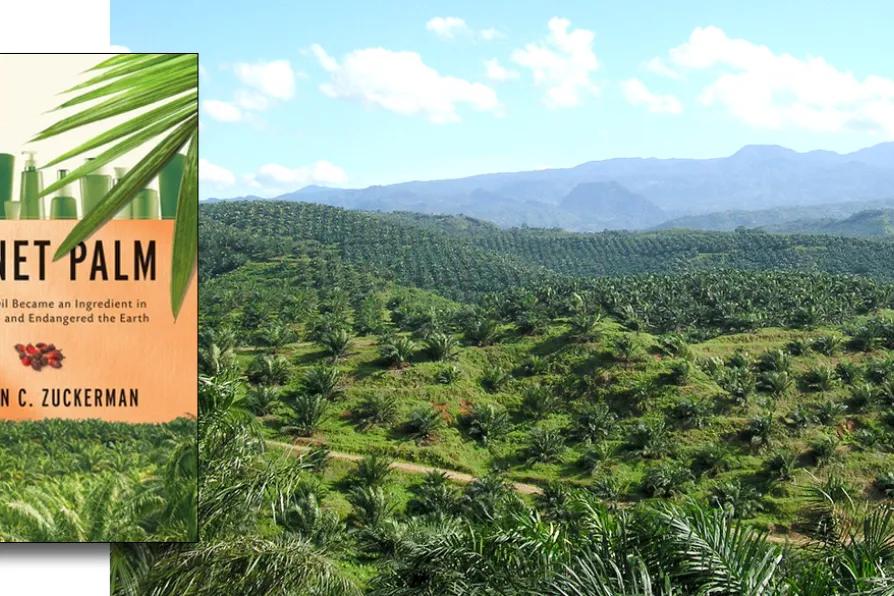MARIA DUARTE and ANGUS REID review "Wuthering Heights", Little Amelie or the Character of Rain, Crime 101, and Stitch Head

 DAMAGING MONOCULTURE: A palm oil plantation in Cigudeg, Bogor
[Achmad Rabin Taim/Creative Commons]
DAMAGING MONOCULTURE: A palm oil plantation in Cigudeg, Bogor
[Achmad Rabin Taim/Creative Commons]
Planet Palm
by Jocelyn C Zuckerman
(Hurst, £20)
THE TITLE of this book gives a strong sense of the ubiquity of palm products today: its oil is the most widely used vegetable product on the planet and accounts for a third of all vegetable oils.
It’s found in processed foods — margarine, confectionery, ready meals, snacks — and also in cosmetics, cleaning products, animal feed and biofuels. Palm oil is cheap to produce, stable in processing and has a long shelf life.
Indonesia and Malaysia produce 90 per cent of the world’s palm oil and to facilitate the proliferation of oil palm plantations, Indonesia has destroyed 60 million acres of rain forest — equivalent in size to Britain — between 2001 and 2017 alone. Malaysia’s figure is 20 million acres in the last 20 years, with the destruction continuing apace.

As fossil fuels have had their day, JOSIE MIZEN makes it clear that it is now the government’s responsibility to initiate the transition to alternative employment in a manner that is organised, efficient and effective

The horrors in the Congo have much in common with Gaza’s genocide, most notably the financial and military support of the US, writes LINDA PENTZ GUNTER

SUE TURNER welcomes a thoughtful, engaging book that lays bare the economic realities of global waste management











